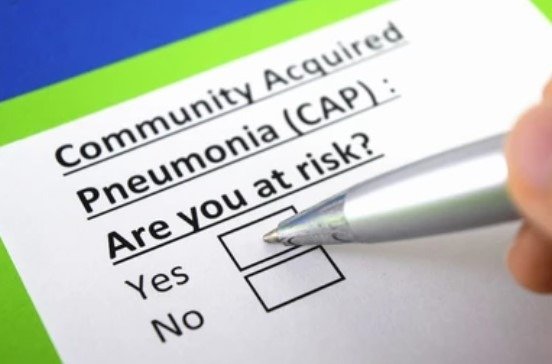Navigating Community-Acquired Pneumonia: Key Facts and Prevention Strategies
Community-Acquired Pneumonia (CAP) is a significant health concern that affects individuals of all ages, particularly as the weather turns colder and respiratory illnesses become more common. As a Family Nurse Practitioner, I aim to provide you with valuable insights into CAP, its symptoms, risk factors, and how you can protect yourself and your loved ones.
What is Community-Acquired Pneumonia?
Community-Acquired Pneumonia is a type of pneumonia that is acquired outside of hospitals or other healthcare facilities. It is an infection that inflames the air sacs in one or both lungs, which can fill with fluid or pus, leading to cough, fever, chills, and difficulty breathing. CAP can be caused by bacteria, viruses, or fungi, with Streptococcus pneumoniae being one of the most common bacterial causes.
Symptoms of CAP
The symptoms of CAP can range from mild to severe, and they often resemble those of the flu or a cold. Common symptoms include:
- Cough, which may produce phlegm
- Fever and chills
- Shortness of breath
- Chest pain, especially when breathing or coughing
- Fatigue
- Muscle aches
- Headache
Risk Factors
Certain factors can increase the risk of developing CAP, including:
- Age: Infants, young children, and adults over 65 are at higher risk.
- Chronic illnesses: Conditions such as asthma, COPD, diabetes, and heart disease can increase risk.
- Weakened immune system: This can be due to conditions like HIV/AIDS, or treatments such as chemotherapy.
- Smoking: Smoking damages the lungs and weakens the immune response.
- Recent respiratory infection: A recent cold or flu can increase susceptibility.
Prevention Strategies
Preventing CAP involves a combination of vaccinations, healthy lifestyle choices, and good hygiene practices:
- Vaccinations: Ensure you and your family are up-to-date with pneumococcal vaccines and the annual flu shot, as influenza can lead to pneumonia.
- Hand Hygiene: Regularly wash hands with soap and water, especially after coughing, sneezing, or touching potentially contaminated surfaces.
- Healthy Lifestyle: Maintain a healthy diet, exercise regularly, and get adequate sleep to strengthen your immune system.
- Avoid Smoking: If you smoke, seek resources to help you quit, as smoking is a significant risk factor for pneumonia.
- Minimize Exposure: Avoid close contact with individuals who are sick and practice good respiratory hygiene by covering your mouth and nose with a tissue or elbow when coughing or sneezing.
Treatment Options
Treatment for CAP depends on the severity of the condition and the underlying cause. Options may include:
- Antibiotics: For bacterial pneumonia, antibiotics are often prescribed.
- Antiviral Medications: These may be used if a virus is the cause.
- Supportive Care: Rest, hydration, and over-the-counter medications to manage fever and pain.
- Hospitalization: Severe cases may require hospitalization for oxygen therapy or intravenous antibiotics.
When to Seek Medical Attention
It’s important to seek medical care if you experience:
- Persistent fever
- Difficulty breathing or rapid breathing
- Chest pain
- Confusion or changes in mental awareness
- Worsening symptoms despite home treatment
Conclusion
Community-Acquired Pneumonia is a serious illness, but with the right knowledge and preventive measures, you can significantly reduce your risk. If you or a loved one experiences symptoms of CAP, don’t hesitate to reach out to a healthcare provider for guidance and treatment.
Stay informed and proactive about your respiratory health!
For more information or to schedule a consultation, please contact my office at 480-499-0102.
Allan Buenaventura, NP
Family Nurse Practitioner
1845 E Broadway Road, Suite 116, Tempe, AZ, 85282








